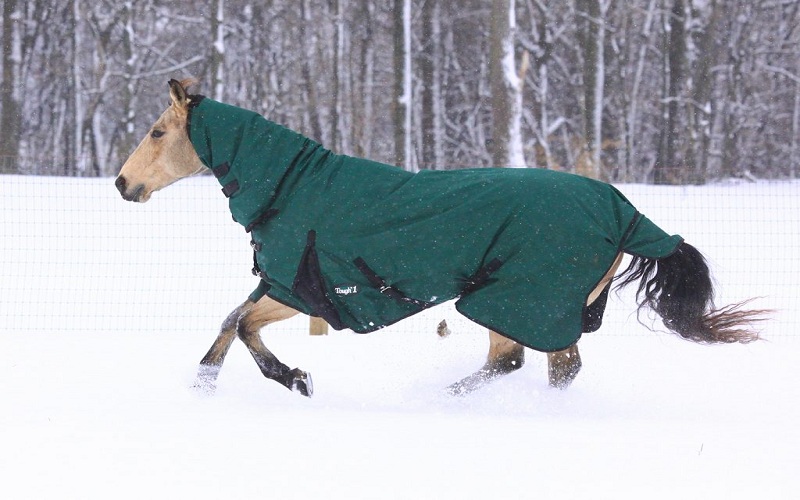Blanketing a horse is a common practice among horse owners, especially during the winter season. Blanketing a horse has many benefits, including keeping the horse warm, clean, and dry during cold weather.
However, even though blanketing a horse is beneficial, numerous myths surround it, which can lead to misinformation and confusion. In this blog, we debunk some of the most common myths about horse blanketing. Let’s explore them.
1. Horses don’t need a blanket because they have a natural coat
Although horses naturally have a coat that keeps them warm, this coat might not be adequate in every circumstance. Age, health, and environment can impact a horse’s capacity to control its body temperature. Blanketing horses with a fleece horse blanket, particularly those with thin coats or clipped, can provide more warmth and protection.
2. Putting a blanket on your horse can stop them from growing coat
Even if you cover him with a blanket, your horse can still develop a coat. Blankets may seem to flatten the coat, making it less thick and fluffy. The pituitary gland of horses is responsible for detecting variations in daylight hours and releasing the hormones that trigger the horse to grow or blow out their coat.
Timing the lights in the barn is one strategy to prevent your horse from acquiring a coat too quickly. Turning on the light source will provide enough extra light—both natural and artificial—to create 16 hours of daylight. But be ready to cover your horse to keep them warm.
3. Horses need to be blanketed throughout
Depending on the needs of each horse and the weather, blanketing should be used as needed. Certain horses could require blanketing more often than others, mainly if they are older, have medical conditions, or have been clipped. Monitoring the horse’s physical condition and modifying the blanketing as necessary is critical.
4. Horses only need blankets when it’s cold
Horses can benefit from blanketing in all types of weather conditions. Horses can benefit from the extra warmth and protection a fleece horse blanket offers even in warmer climates, particularly in a cold snap or bad weather.
5. Blanketing is only required for clipped horses
While blanketing can be advantageous for all horses, clipped or not, it is more beneficial for clipped horses. Even unclipped horses can benefit from being covered in a blanket in cold or wet weather, especially if they are turned out, elderly, or have health concerns.
6. Horses are unable to control their body temperature if blanketed
Even when they are blanketed or if a weatherbeeta elite saddle pad is placed on them, horses can still control their body temperature. Adding layers of insulation and blanketing can assist horses in maintaining a comfortable body temperature without compromising their ability to do so.
Final words
Horse blanketing is surrounded by several myths and misconceptions that can cause misunderstandings and false information. It’s critical to understand the facts surrounding horse blanketing and base judgments on the needs of each horse and the local climate. Horses can benefit from blanketing in various weather conditions, not just cold ones. It can assist horses stay warm enough while shielding their natural coat just like how a weatherbeeta elite saddle pad does.

